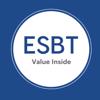Government bond market after 15 years of operation
Late September marked a successful 15 years for Vietnam’s government bond market.

Vietnam’s government bond market was officially launched and began operations on September 24, 2009, following more than a year of implementing the Ministry of Finance’s policy on establishing a market for specialized government bond trading, as outlined in Decision No. 86/QD-BTC, dated January 15, 2008.
All government bonds in the market have been issued through centralized auctions since 2006 and listed on the Hanoi Stock Exchange (HNX) since 2008. Bonds issued through auctions and guarantees, after being listed, are traded on a separate government bond trading system, distinct from the stock trading system. This has helped foster the growth of government bond issuances via auctions.
Sustainable restructuring
Backed by the credibility of the government, the regular issuance of government bonds, whether short-term or long-term, based on an overall plan, creates a benchmark interest rate curve for both the money and securities markets, which is determined by supply and demand.
According to figures from HNX, the capital raised through auctions has significantly increased over the past 15 years. Through over 3,400 auctions, more than VND3,300 trillion ($132 billion) has been mobilized for the State budget to serve the country’s economic development needs.
Since 2009, the scale of government bond issuances through auctions has grown at an average annual rate of about 40 per cent. This is equivalent to an average annual mobilization of over VND225 trillion ($9 billion), which represents more than 7 per cent of the total social investment capital in 2023 and 24 per cent of the total State investment capital for that year.
The increase in domestic capital mobilized through government bond issuances has helped reduce the proportion of foreign debt in the government’s total borrowings. Specifically, foreign debt fell from 73.6 per cent in 2010 to 63.4 per cent in 2015 and then to 34.8 per cent in 2021, and was estimated at around 37-38 per cent as of the end of 2023.
Regarding interest rates, the mobilization rates on the government bond market have decreased significantly over the years for all terms, by 4-9 per cent per annum.
The average maturity of government bond issuances, meanwhile, has increased from 3.43 years in 2013 to 12.58 years in 2023. This extension helps ease pressure on debt repayments and smooth out peak debt levels for the national budget, and contributes to building a more secure and sustainable national financial system.
The restructuring of investors in the market has also played a key role in stabilizing the bond market, minimizing the impact of short-term fluctuations in the money market. As of the end of August 2024, the proportion of government bonds held by commercial banks had fallen to about 40 per cent, down from 80 per cent before 2015, while the share held by insurance companies, financial institutions, and investment funds had risen to around 60 per cent, up from 20 per cent.
In the secondary market, both scale and liquidity have grown significantly. Along with this, the government bond market has also made significant strides forward in depth, as evidenced by the increasing volume of repurchase agreements (repos). The share of repos has surged from a modest 6.5 per cent of total trading value in 2009 to 55 per cent in 2019, and stood at 40 per cent as of the end of August 2024, with strong participation from commercial banks.
Ongoing technological advancements
As the market operator, HNX has been continually improving and expanding its bidding system, which was initially limited to entering bids and determining outcomes. In August 2012, however, HNX introduced an electronic auction system, allowing participants to submit electronic bids, replacing the earlier paper-based method. In June 2016, HNX further upgraded the system with the online electronic auction platform (E.ABS), built on modern internet technology, which enabled non-member investors to submit electronic bids over the internet. The E.ABS system halved the time needed for auctions, meeting market demands while helping members and investors save time and reduce costs.
HNX, in collaboration with the State Treasury, has developed various new auction procedures and proactively upgraded the system to align with these updates. A key improvement was the introduction of supplementary auctions, which reduced the number of bond codes and expanded the scale of bond listings, creating a more standardized bond portfolio. To further enhance flexibility, HNX added supplementary issuance sessions alongside the main morning session, allowing issuers to be more responsive and proactive by calling for additional bids when market conditions are favorable. Other new features include repurchase auctions and bond swap auctions on the government bond auction system.
In July 2021, HNX officially launched government bonds with a repurchase period, using temporarily idle State budget funds from the State Treasury (State Treasury repos). This initiative enabled more efficient cash management by the State Treasury while offering government bondholders an additional method of securing loans by using bonds as collateral. Currently, four types of bond transactions are available in the secondary market, including regular buy-sell transactions, repurchase transactions, combined buy-repurchase transactions, and borrowing and lending transactions.
Throughout the development of the government bond market, HNX has emphasized infrastructure and technological enhancements as well as market indicators to support the various market activities. In March 2013, it launched the yield curve, and in January 2015 it introduced the bond indices. Both indicators have played a vital role in determining reference interest rates and bond pricing, providing more favorable trading conditions for investors and market participants.
Key future objectives
The government bond market plays a crucial role within the stock market. Moving forward, HNX’s leadership has confirmed that they will continue to align with the development direction set by the government, the Ministry of Finance, and the State Securities Commission. They will also collaborate with relevant stakeholders to foster the growth of the bond market in terms of both size and operational quality. This includes product diversification, ensuring the market operates transparently, publicly, and efficiently, and progressively adopting international standards and practices as outlined in the Securities Market Development Strategy to 2030, issued by the Prime Minister in Decision No. 1726/QD-TTg on December 29, 2023.
HNX will focus on introducing new bond products that align with market development and investor needs, such as green bonds, floating-rate bonds, strip bonds (where principal and interest are traded separately), and inflation-linked bonds. These efforts aim to create additional funding sources for the State budget and attract investors committed to sustainable economic growth. “The regulatory body must implement policies to diversify bond maturities, emphasizing long-term bonds over five years while remaining flexible with shorter-term issues to create a comprehensive reference yield curve,” HNX has recommended.
In addition, the exchange will continue enhancing trading infrastructure with a modern, professional approach, preparing for new product offerings. It will also upgrade its information disclosure system to ensure transparency, public access, and timely updates. Moreover, HNX will refine the market maker system, granting the necessary rights and responsibilities to perform market-making functions in both primary and secondary markets, ultimately boosting market liquidity.
HNX aims to expand the investor base by attracting long-term investors and encouraging foreign participation, particularly from international institutional investors, in Vietnam’s government bond market, with a special emphasis on green bonds.
In previous years, including 2013, 2014, 2018, and 2019, the country’s government bond market was recognized by the Asian Development Bank (ADB) as one of the fastest-growing in East Asia. With such achievements, the market is expected to continue its strong growth and reach even greater milestones, reinforcing its role as a vital financial institution in the economy.



















